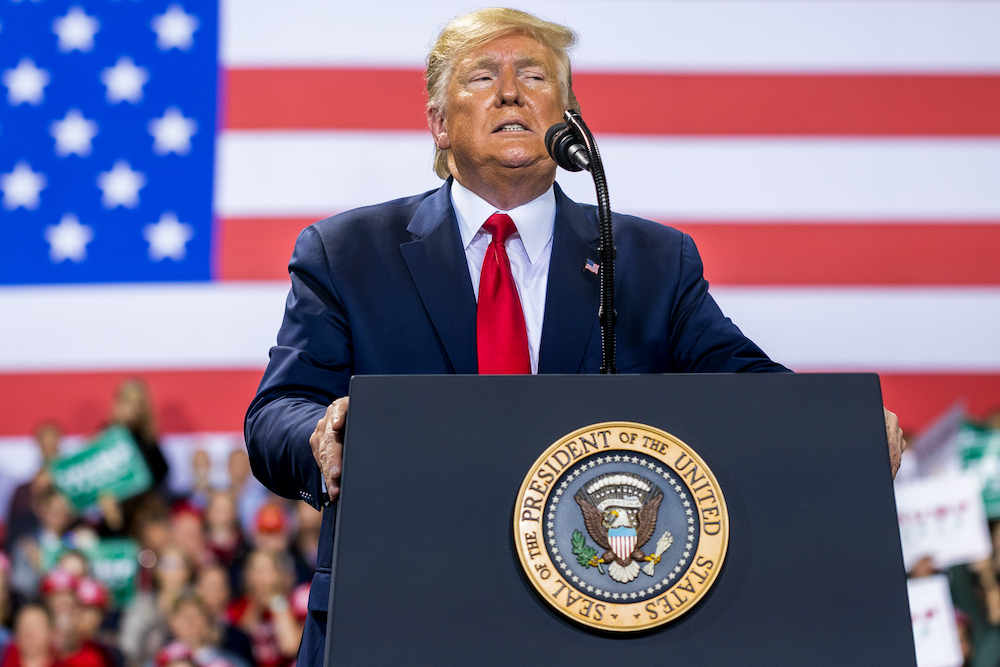Politics
NEW: Trump Gets Surprising Trial Delay In New York

The expected judgment in the New York civil business fraud case involving former President Donald Trump, initially thought to be announced on Wednesday, is now forecasted for early to mid-February, according to a court representative.
Alfred Baker, a representative for the New York State Office of Court Administration, mentioned that Judge Arthur Engoron’s timeline for issuing the written ruling is a “rough estimate” and could change. “However, that is the current strategy,” Baker stated according to NBC News.
Trump’s business fraud case in New York involves allegations against him, his company (The Trump Organization), and several associates. The case alleges that they engaged in a years-long fraud scheme, inflating asset values and financial statements to secure loans and insurance benefits, and to reduce tax liabilities.
The case, spearheaded by New York Attorney General Letitia James, seeks to hold Trump and his organization accountable for these alleged fraudulent practices.
At the conclusion of Trump’s trial in Manhattan Supreme Court last month, Engoron stated he aimed to deliver his final decision by Wednesday, stressing there was “no guarantee” he could adhere to this timeline.
The lawsuit, filed after a detailed investigation, accuses Trump and his business of misleading banks, insurers, and tax authorities about the value of assets—ranging from real estate holdings to the value of the Trump brand itself—to gain financial advantages. The investigation drew on testimony from Trump Organization executives and a vast array of financial documents.
In response, Trump and his legal team have denied any wrongdoing, arguing that the valuations were subjective and that lenders were fully repaid. They also claim the investigation and subsequent legal actions are politically motivated.
The case could have significant legal and financial repercussions for Trump and his business empire, including fines, restrictions on their business operations in New York, and potential implications for Trump’s broader financial dealings.
The trial concluded its final stages as the defense and prosecution presented their closing arguments in mid-January. The trial has also appeared to have bolstered the former president’s support. Trump, who has maintained his innocence throughout the proceedings, has repeatedly criticized the trial, framing it as part of a larger pattern of political persecution.
In an unanticipated move during the closing arguments in January, Trump delivered a vigorous defense, asserting that he was the victim of fraud and deserves compensation for damages.
The judge’s decision stated that the Mar-a-Lago property is worth a mere $18 million, a figure starkly contrasting Trump’s claim of its value being around $1.8 billion. The former president and his team have argued that the valuation has been grossly underestimated, affecting not just his business but his potential political future.
The tension in the courtroom escalated when Trump ignored the judge’s one-minute warning to conclude his remarks. Paraphrasing his response to the judge, Trump questioned the time constraint, pointing to the importance of his statement.
“I’m an innocent man persecuted. I have to go outside the bands,” Trump declared

